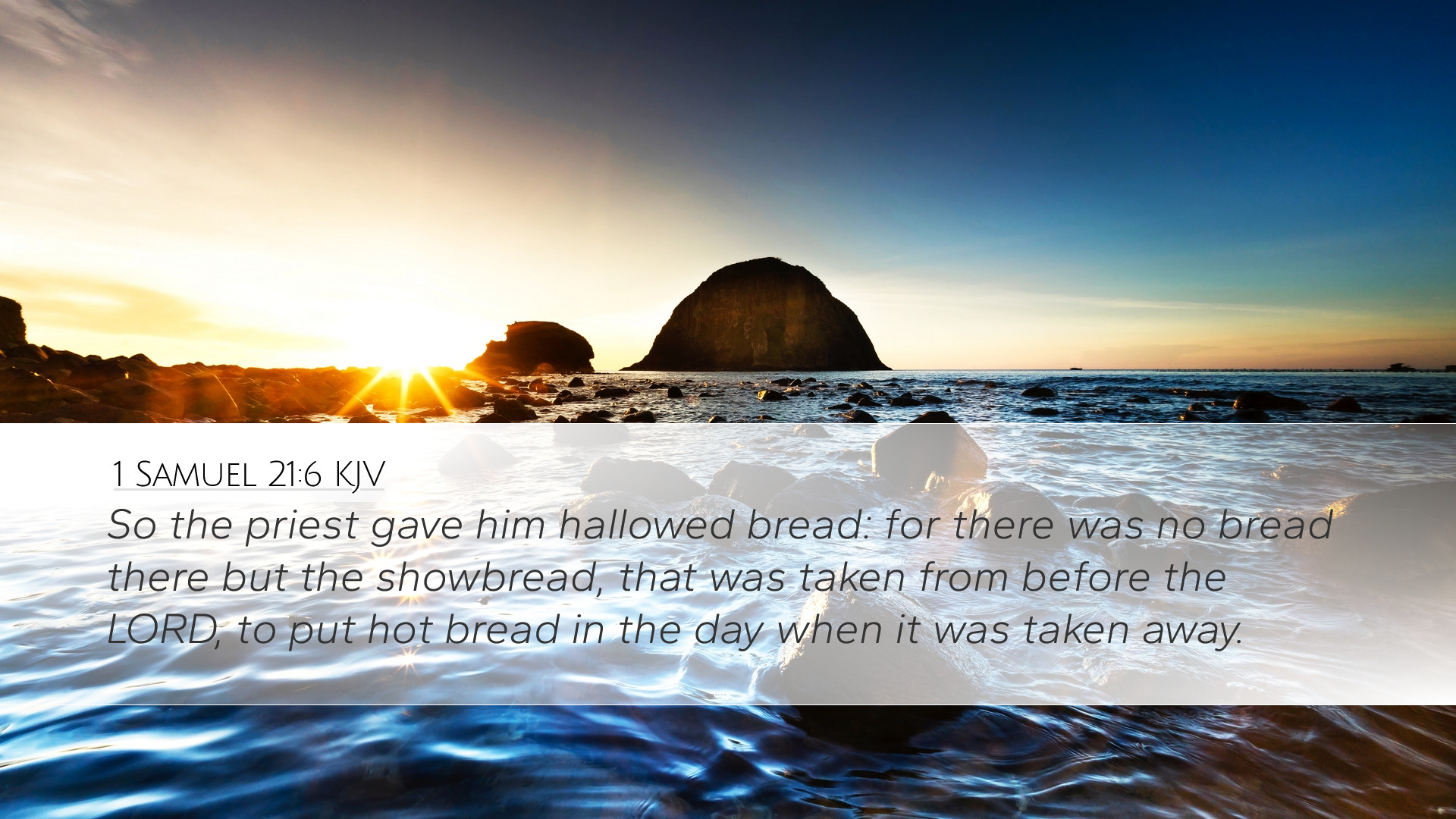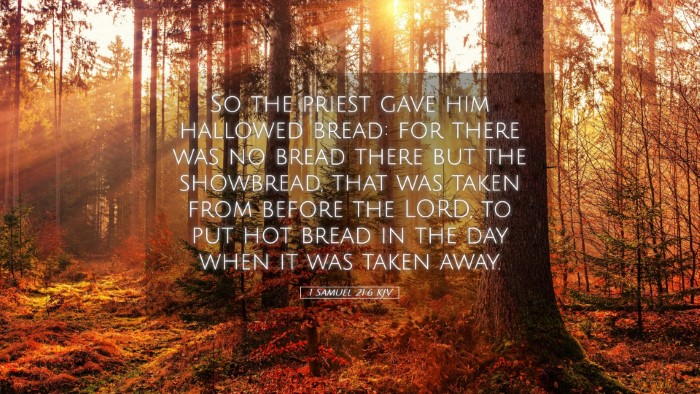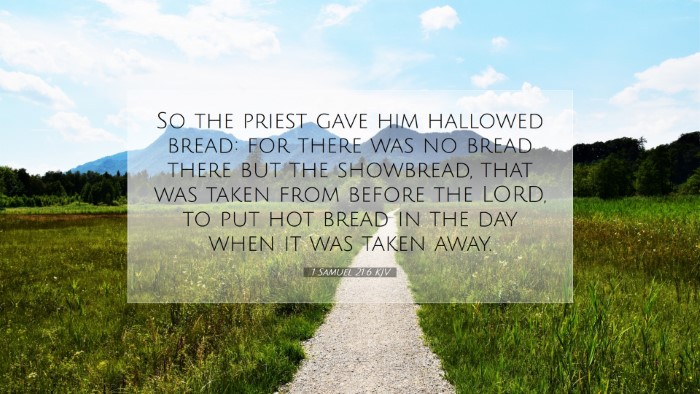Commentary on 1 Samuel 21:6
Verse Context: In 1 Samuel 21, David, fleeing from King Saul, finds himself in a precarious situation that requires both physical nourishment and spiritual insight. Verse 6 captures a pivotal moment when David, seeking refuge, is provided with the sacred bread from the tabernacle, known as the showbread.
Summary of Insights
This verse is significant as it illustrates the intersection of divine provision and human need. Public domain commentaries from Matthew Henry, Adam Clarke, and Albert Barnes provide a rich tapestry of insights that are essential for understanding the implications of this passage.
Matthew Henry's Commentary
Matthew Henry emphasizes the circumstances surrounding David’s need for sustenance. David, on the run, approaches Ahimelech, the priest, and asks for bread, signifying his desperation. Henry points out that the priest initially has only the showbread, which has been set apart for sacred use. However, the necessity of David's situation overrides the ceremonial law, illustrating a profound truth: human need can transcend religious formality.
Henry draws attention to the nature of the showbread, which was a symbol of God's continual provision for Israel. Its offering to David signifies God's providence even in desperate times, demonstrating that mercy triumphs over judgment. This interplay between sacred rituals and urgent human requiremenets showcases God's heart for humanity, a theme that holds immense relevance for pastors and theologians today.
Albert Barnes' Commentary
In his commentary, Albert Barnes provides a theological exploration of the implications of the showbread. He notes that the bread, which was typically reserved for the priests alone, symbolizes Christ as the Bread of Life. Barnes argues that David’s reception of the bread foreshadows how Jesus would fulfill the law’s requirements through His mercy and compassion toward the needy.
Barnes also discusses the moral situation surrounding David, framing his actions within the tension of law and grace. He notes that while David was technically breaking the ceremonial law, God’s provision for him illustrates the essence of the law’s purpose: to bring life and sustenance rather than mere ritualistic observance. This analogy serves as a reminder for current readers to prioritize human need in ministry and theological discourse.
Adam Clarke's Commentary
Adam Clarke approaches this narrative with a focus on the characters involved and their motivations. He highlights Ahimelech’s initial hesitation and fear upon meeting David, knowing that he was a fugitive. Clarke expounds on the psychological and theological ramifications of David's request for bread. His plea signifies not only a physical need but also a spiritual hunger for God's support during tumultuous times.
Moreover, Clarke notes that while the bread was holy, David’s hunger granted him a unique exception. This act serves as a profound illustration of God’s provision in crisis and affirms that God nurtures those who seek Him earnestly, even through unconventional means. Clarke urges ministers and students of the Word to recognize that God’s provision often appears outside typical expectations, asking them to remain open to divine intervention in unexpected forms.
Application for Pastors, Students, and Theologians
The narrative in 1 Samuel 21:6 provides rich theological insights that are applicable today. Here are several key takeaways for pastors, students, and theologians:
- Understanding Divine Provision: The story illustrates God’s provision for His people. In ministry, establishing faith in divine sustenance is crucial, particularly when faced with challenges in congregational life or personal trials.
- Balancing Law and Grace: This verse invites a careful examination of how to navigate the tension between adherence to religious law and embodying grace. It encourages leaders to prioritize compassion over rigidity.
- Human Need as a Priority: The narrative showcases that human needs should lead ministry practices. Pastors are called to engage with the vulnerable and remind their congregations of God’s mercy and care.
- Foreshadowing Christ: The theological implications surrounding the showbread invite reflection on the New Testament context. Understanding Jesus as the fulfillment of the law enriches preaching and teaching, linking Old Testament narratives to New Testament realities.
Conclusion
1 Samuel 21:6 encapsulates a profound moment that illustrates God’s mercy operating within the parameters of human needs. The insights from Matthew Henry, Albert Barnes, and Adam Clarke provide a comprehensive understanding that transcends mere historical narrative, offering rich theological reflections relevant for today’s ministry. As pastors, scholars, and students engage with this verse, they are invited to explore the depths of divine care and the call to live out grace in their contexts.


